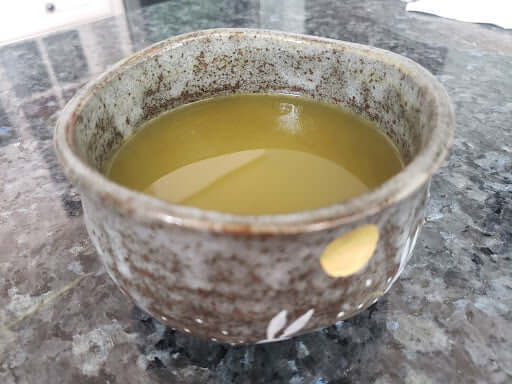
Tinnitus is the medical term for experiencing ringing or another loud noise in one or both of your ears. This sound isn't caused by an external noise, and other people cannot hear what you experience.
It's a fairly common problem, with more than 15% of the population experiencing it at some point in their lives.
Tinnitus is often caused by some sort of underlying condition like an ear injury or a circulatory problem. It can also be age-related.
Treatment options include masking the noise as well as treating the underlying causes of the condition.
Symptoms of Tinnitus
For most people, tinnitus appears as a ringing in the ears. Though it can also present as a buzzing, roaring, clicking, hissing, or humming sound.
In fact, the noises people are able to hear can vary greatly, from a loud squeal to a dull roar. The sound can be persistent, or come and go, and may affect your ability to concentrate or process the actual sound around you.
For an unlucky few, tinnitus appears as a rhythmic pulsing or whooshing sound - often in tune with their heartbeat. This version is referred to as pulsatile tinnitus.
When to See a Doctor About Your Tinnitus
For some, tinnitus is a minor inconvenience, for others, it's completely debilitating. If your tinnitus is bothering you consistently, it's time to find a treatment that can work for you.
For those who develop tinnitus after an upper respiratory infection, it's best to see a doctor if the condition doesn't improve after a week.
It's also important to see your doctor is you have any hearing loss or experience dizziness in combination with your tinnitus. Or, if you are experiencing depression and anxiety in relation to your tinnitus.
Common Tinnitus Causes
Hearing loss is the most common cause of tinnitus - whether due to old age or damage from regular exposure to loud noises.
Ear infections and blockages also cause the condition as well as head and neck injuries, and certain medications.
There are also less common causes of tinnitus including:
- Meniere's Disease
- Ear Bone Changes
- Muscle Spasms
- TMJ
- Eustachian Tube Disfunction
- Tumors
- Blood Vessel Disorders
- Other Chronic Conditions
Risk Factors for Tinnitus
Exposure to loud noises, whether from your work environment or your desire to rock out to loud music, is the biggest risk factor for tinnitus.
The condition is also tied to your age. As more fibers of nerves in your ears begin to decline over time, you could begin to experience hearing loss and tinnitus.
Gender is also a risk factor with men being more likely to develop the condition. Alcohol and tobacco use can also have an impact.
How to Treat Tinnitus With Supplements
Eating foods rich in the right vitamins and minerals may not be able to restore your hearing loss if you are born deaf, but it can have a major impact on your ability to maintain your hearing as you age.
Some of the best supplements and nutrients to eat for improvement of your tinnitus symptoms are featured below.
B-12
Studies have shown that B-12 deficiency can be the cause of tinnitus due to demyelination of the nerves and supplementation with B-12 can reduce the severity of the symptoms.
Bio-flavonoids
If your tinnitus is a result of circulation issues, bio-flavonoids can be very helpful. They have anti-inflammatory and anti-oxidant properties that help to improve the microcirculation in the inner ear. They also block histamine production in the inner ear which can cause disturbances.
Folate
Most Americans get enough folic acid from the fortified foods they eat. But, in other countries where this substance is not added to highly-consumed foods, deficiencies in folic acid can lead to premature hearing loss.
Magnesium
Magnesium therapy is a well-known treatment for hearing loss due to its neuro-protective and vasodilatory effects. It's also able to help limit cochlear damage due to hearing loss from exposure to loud sounds.
Vitamins A, C, and E with Magnesium
According to research by the University of Michigan, if you are experiencing noise-induced hearing loss, you could benefit from a regimen of vitamins A, C, and E, combined with magnesium.
When issued in a saline solution, this combination has been shown to reduce threshold deficits, eliminate hair cell damage, and slow sensory cell death.
Other Treatments for Tinnitus

Treatment for tinnitus starts with identifying the underlying health condition that is causing it.
You may be able to get rid of the noise using earwax removal if a blockage is causing a condition. You can also get treatment for blood vessel conditions that cause tinnitus.
For those with noise-induced or age-related tinnitus related to hearing loss, hearing aids may be able to improve their symptoms.
And, if you are someone who experiences tinnitus because of a medication you take, your doctor may recommend reducing or changing your prescription.
Some other common alternative treatments for tinnitus treatment include acupuncture, yoga, biofeedback, hypnotherapy, hyperbaric oxygen treatments and homeopathy.
A functional or integrative physician can help you find the right plan of attack based on your suspected cause and specific symptoms. Sufferers often try different modalities until they find a treatment that works for them.
Do you have a tinnitus treatment that works for you that we haven't mentioned? Share with our other readers in the comments section!



